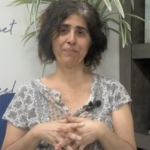Medically Reviewed by: Dr. Bautista
Our Editorial Policy
Updated on: November 21, 2019
About Non-Hodgkin Lymphoma
Non-Hodgkin lymphoma is a type of cancer that affects lymphocytes, types of white blood cells in the lymphatic system. The main difference between Hodgkin and non-Hodgkin types of lymphoma are the types of cells involved. Hodgkin lymphoma cells specifically involve a type of abnormal cell known as the Reed-Sternberg cell.
Non-Hodgkin lymphoma tends to be more common than Hodgkin lymphoma and is one of the most common types of cancer overall, comprising of about 4 percent of all cancer cases. It can occur at any age, affecting children and teens as well as those 65 and older.
Subtypes of Non-Hodgkin Lymphoma
Non-Hodgkin’s lymphoma (NHL) encompasses a diverse group of blood cancers originating in the lymphatic system. These cancers involve abnormal lymphoma cells, which are essentially cancer cells, and they can manifest in various forms and subtypes. The hallmark of NHL is the uncontrolled growth of lymphoma cells. Here are some common types of Non-Hodgkin’s lymphoma (NHL) where these cells play a critical role:
Diffuse Large B-Cell Lymphoma (DLBCL): This is the most common type of NHL and is characterized by the rapid proliferation of lymphoma cells.
Follicular Lymphoma: Follicular lymphoma arises from B-cells and is characterized by the accumulation of cancerous cells in lymph nodes.
Mantle Cell Lymphoma: Mantle cell lymphoma involves the abnormal growth of lymphoma cells from the mantle zone of lymph nodes, contributing to its aggressive nature.
Chronic Lymphocytic Leukemia/Small Lymphocytic Lymphoma (CLL/SLL): Both CLL and SLL are associated with the overproduction of cancerous B-lymphocytes or lymphoma cells in the blood and lymph nodes.
Burkitt Lymphoma: Burkitt lymphoma, commonly associated with Epstein-Barr virus, features rapidly dividing lymphoma cells, often found in lymph nodes.
T-Cell Lymphomas: These lymphomas originate from abnormal T-lymphocytes or lymphoma cells and include subtypes like peripheral T-cell lymphoma and cutaneous T-cell lymphoma.
Anaplastic Large Cell Lymphoma (ALCL): ALCL may involve T-cells or B-cells and exhibits the presence of large, abnormal lymphoma cells in lymph nodes and tissues.
Hodgkin-like NHL: Certain NHL subtypes, like nodular lymphocyte-predominant Hodgkin lymphoma (NLPHL), may share characteristics with classical Hodgkin lymphoma, including Reed-Sternberg cells (a type of lymphoma cell).
Non-Hodgkin’s lymphoma encompasses a spectrum of lymphoid cancers driven by the uncontrolled growth of lymphoma cells. Understanding the specific subtype and behavior of these cancerous cells is essential for diagnosis and tailoring appropriate lymphoma treatment strategies.
Causes and Risk Factors
Cancer is caused by a genetic mutation that results in the unregulated growth of certain cells (in this case, lymphocytes). As cells grow out of control, they can accumulate and form into masses known as tumors. Eventually, the cancer cells may spread into other parts of the body. Research and clinical trials are still necessary to determine what actually causes this genetic mutation.
While there are some risk factors, many people diagnosed with non-Hodgkin lymphoma present no known risk factors. Many people who have risk factors for the disease never develop it.
A family history of non-Hodgkin lymphoma may increase your risk of developing the cancerous disease yourself. Certain chemicals found in herbicides and insecticides have been linked to an increased risk of non-Hodgkin lymphoma. Exposure to radiation may also increase your risk of developing NHL, among other cancers. A suppressed immune system has also been found to be a risk factor for non-Hodgkin lymphoma.
Certain viral and bacterial infections may also increase your risk of non-Hodgkin lymphoma, including:
- Epstein-Barr
- Human herpes virus 8
- Human T-cell lymphotropic virus
Early Detection, Diagnosis, and Staging
Common signs and symptoms of non-Hodgkin lymphoma include:
- Pain or swelling in the abdomen
- Swollen lymph nodes in the armpits, groin, or neck
- Fever
- Chest pain, coughing, or breathing problems (flu- like symptoms)
- Night sweats
- Fatigue
- Sudden, unintended weight loss
Diagnosis starts with a physical exam, during which your doctor can evaluate swelling in the lymph nodes, liver, or spleen. Urine and blood tests can help the doctor eliminate other conditions with similar symptoms, while imaging through a chest x-ray, CT scan, etc. allows the doctor to identify tumors. The doctor may also perform a lymph node biopsy for lab testing.
Staging processes allow the doctor to determine the severity and potential spread of the cancer cells. The stages for non-Hodgkin lymphoma are designated by the Roman numerals I to IV. The lower stages signify cancer that is confined, while higher stages show that the disease has spread to other parts of the body. These stages signify if the patient needs radiation therapy, natural treatment, chemotherapy, surgery, etc.
Alternative and Natural Treatments for Non-Hodgkin Lymphoma
Cancer treatment for non-Hodgkin lymphoma usually involves chemotherapy, radiation therapy, and other therapies involving drugs. While these treatments may be effective, they can take a toll on your body, leaving you physically and emotionally weak while preventing your immune system from operating at full strength.
That’s where natural treatment for non-Hodgkin lymphoma comes into play. At Immunity Therapy Center, our goal is to provide completely customized treatment plans using natural and alternative therapies that keep your body strong and comfortable. Our personnel work directly with you, allowing us to not only personalize your treatment, but also learn more about your life and your health needs. Contact Immunity Therapy Center today to learn more and to receive a custom treatment plan.
Sources:
– https://www.cancer.org/cancer/non-hodgkin-lymphoma/about/what-is-non-hodgkin-lymphoma.html
Therapies we useAt Immunity Therapy Center, our goal is to provide objective, updated, and research-based information on all health-related topics. This article is based on scientific research and/or other scientific articles. All information has been fact-checked and reviewed by Dr. Carlos Bautista, a Board Certified Medical Doctor at Immunity Therapy Center. All information published on the site must undergo an extensive review process to ensure accuracy. This article contains trusted sources with all references hyperlinked for the reader's visibility.
Customized Care For the Body And The Mind
Discuss Your Custom Alternative Treatment Plan With Our Team Today
Hear from Our Patients
See why the Immunity Therapy Center is a trusted name for medical tourism and cancer treatment centers in Mexico.
FAQ's
Select Topic:- Diseases and Treatments
- Our Mexico-based Center and Team
- Patient Expectations and Experiences
- Costs and Travel Arrangements








